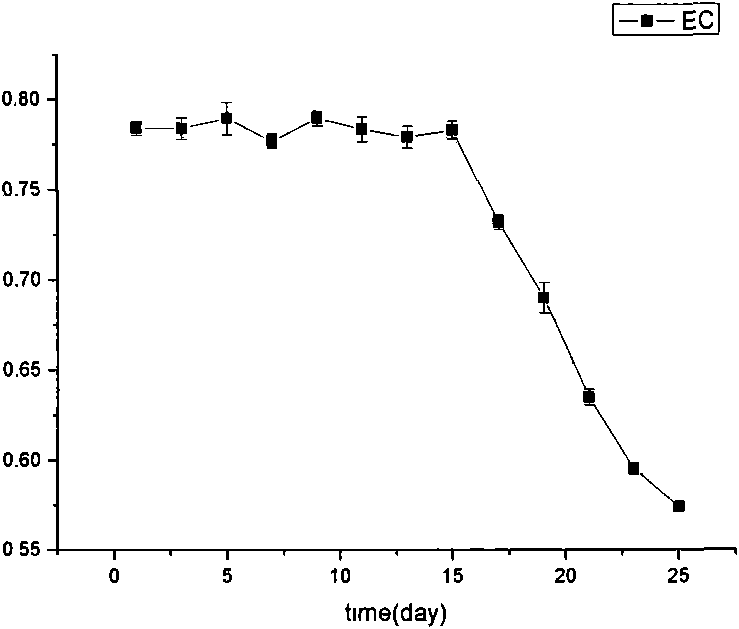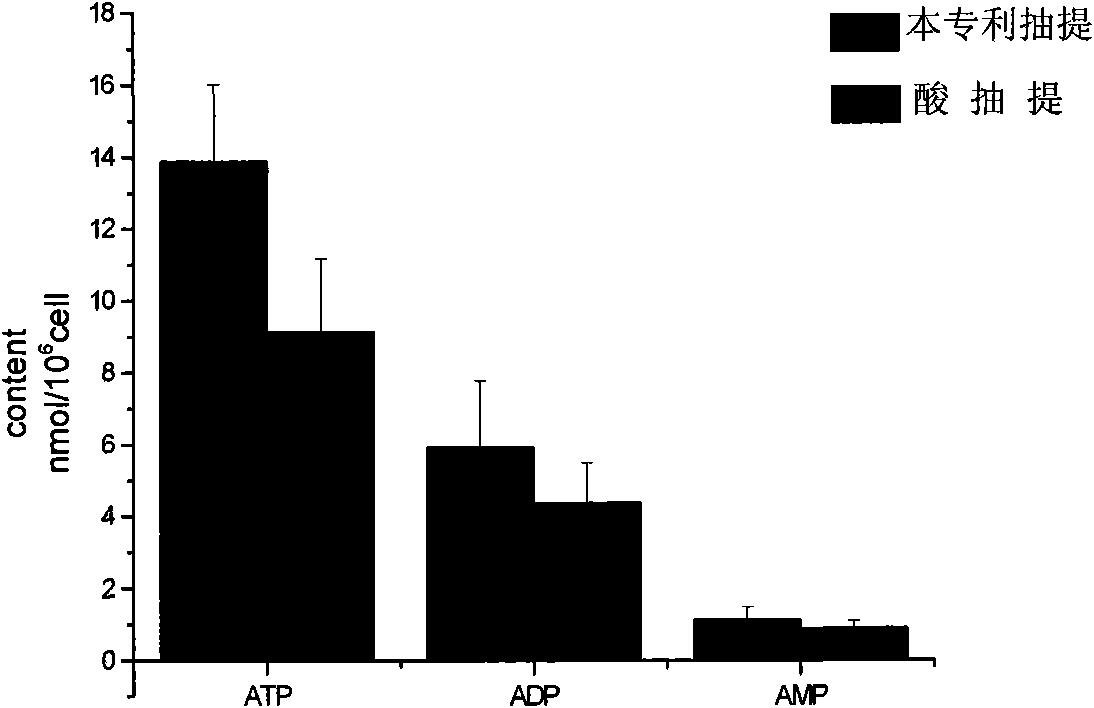Method for detecting activation of microencapsulated cells
A technology of cell activity and detection method, which is applied in the field of detection of microencapsulated cell activity through energy charge calculation, can solve the problems of inapplicability, reduced extraction efficiency, and detection results lower than the actual value, etc., to achieve reliable measurement results and determination The effect of method stability
- Summary
- Abstract
- Description
- Claims
- Application Information
AI Technical Summary
Problems solved by technology
Method used
Image
Examples
Embodiment 1
[0020] A detection method for characterizing the activity of microencapsulated cells by energy charge
[0021] 1) Sample preparation:
[0022] A: Lysis solution: 50mM HEPES, (PH7.4), 50mAU / ml proteinase k, preheated in 50°C water bath.
[0023] B: Collect APA microencapsulated and cultured Hepg2 cells, filter out the culture medium, wash with pre-cooled PBS until the washing liquid is colorless, and then filter the liquid. A 1ml syringe is ground and extracted to break the capsule. After the microcapsule membranes were all damaged under the microscope, preheated lysis solution was added, incubated in a water bath at 50°C for 30 minutes, and shaken at 5-minute intervals. The reaction system was transferred to a water bath at 80°C for 15 minutes, and the supernatant was collected by filtration;
[0024] 2) Separation and quantification of adenylate:
[0025] The content of adenylate in the extracted samples was separated by high performance liquid chromatography. The measur...
Embodiment 2
[0028] A detection method for characterizing the activity of microencapsulated cells by energy charge
[0029] 1) Sample preparation:
[0030] A: Lysis solution: 50mM HEPES, (PH7.4), 50mAU / ml proteinase k, preheated in 50°C water bath.
[0031] B: Collect monomethoxy polyethylene glycol polylactic acid (PELA) microencapsulated microbial cells S. cerevisiae, filter out the culture medium, wash with pre-cooled PBS until the washing liquid is colorless, filter the liquid and add the preheated lysis buffer, Incubate in a 50°C water bath for 30 minutes with shaking at 5-minute intervals. The reaction system was transferred to a water bath at 80°C for 15 minutes, and the supernatant was collected by filtration;
[0032] 2) Separation and quantification of adenylate:
[0033] The content of adenylate in the extracted samples was separated by high performance liquid chromatography. The measurement conditions are UV detector, wavelength 260nm, C18 reversed-phase column, mobile phas...
PUM
 Login to View More
Login to View More Abstract
Description
Claims
Application Information
 Login to View More
Login to View More - Generate Ideas
- Intellectual Property
- Life Sciences
- Materials
- Tech Scout
- Unparalleled Data Quality
- Higher Quality Content
- 60% Fewer Hallucinations
Browse by: Latest US Patents, China's latest patents, Technical Efficacy Thesaurus, Application Domain, Technology Topic, Popular Technical Reports.
© 2025 PatSnap. All rights reserved.Legal|Privacy policy|Modern Slavery Act Transparency Statement|Sitemap|About US| Contact US: help@patsnap.com


